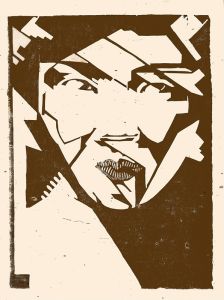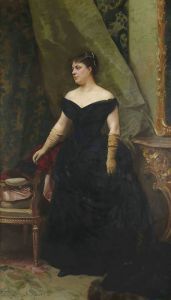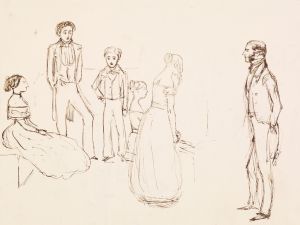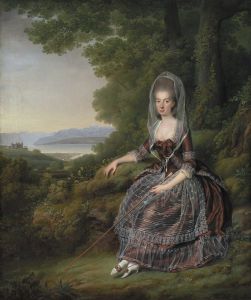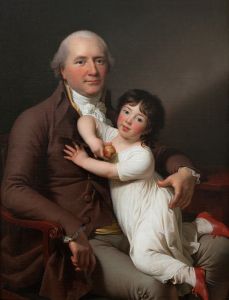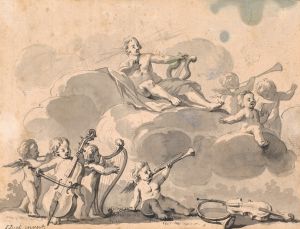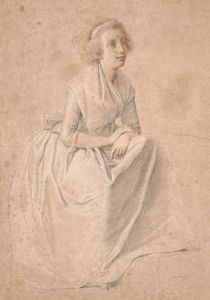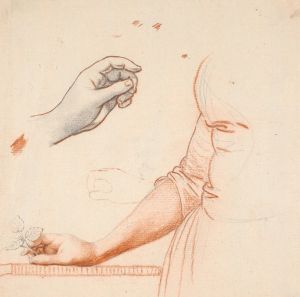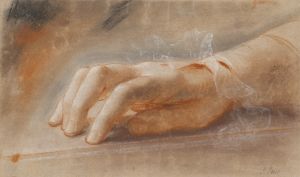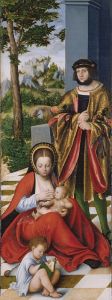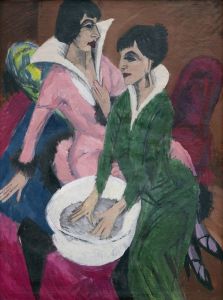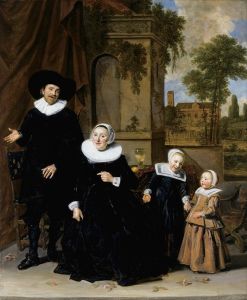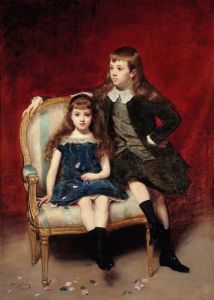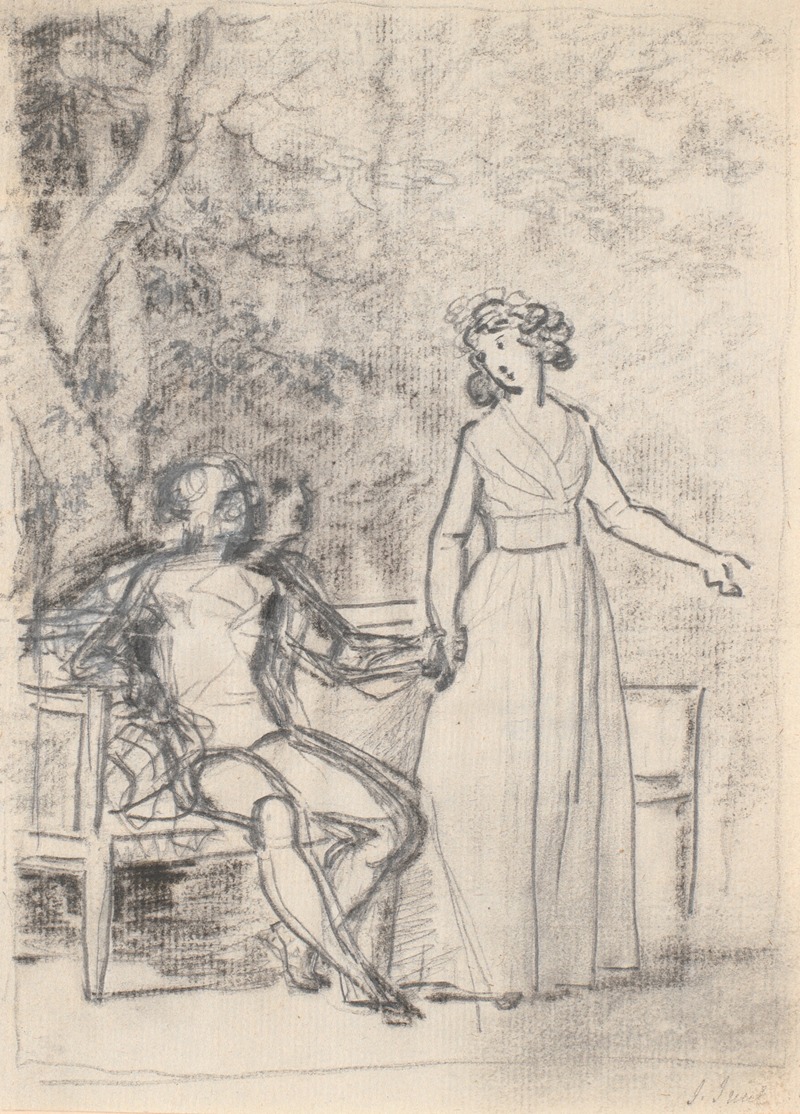
Kompositionsudkast til det Rabenske familiebillede
A hand-painted replica of Jens Juel’s masterpiece Kompositionsudkast til det Rabenske familiebillede, meticulously crafted by professional artists to capture the true essence of the original. Each piece is created with museum-quality canvas and rare mineral pigments, carefully painted by experienced artists with delicate brushstrokes and rich, layered colors to perfectly recreate the texture of the original artwork. Unlike machine-printed reproductions, this hand-painted version brings the painting to life, infused with the artist’s emotions and skill in every stroke. Whether for personal collection or home decoration, it instantly elevates the artistic atmosphere of any space.
Jens Juel was a prominent Danish painter in the late 18th and early 19th centuries, known for his portraits and landscapes that captured the essence of Danish society during the Enlightenment period. One of his notable works is "Kompositionsudkast til det Rabenske familiebillede," which translates to "Composition Sketch for the Rabens Family Portrait." This piece is a preparatory sketch for a larger family portrait, showcasing Juel's meticulous approach to composition and his ability to convey the character and status of his subjects.
Juel was born on May 12, 1745, in Balslev, Denmark, and he studied art in Hamburg and later in Rome, Paris, and Geneva. His exposure to various European art styles influenced his work, allowing him to develop a unique style that combined elements of neoclassicism with a keen attention to detail and realism. Upon returning to Denmark, Juel became a sought-after portraitist among the Danish aristocracy and bourgeoisie.
The "Kompositionsudkast til det Rabenske familiebillede" is a testament to Juel's skill in capturing the likeness and personality of his subjects. Although the final version of the Rabens family portrait is not as widely discussed, the sketch itself provides valuable insight into Juel's creative process. It reveals how he arranged figures, considered lighting, and planned the overall composition to achieve a harmonious and balanced depiction of the family.
Juel's portraits are characterized by their elegant simplicity and the subtle interplay of light and shadow, which he used to highlight the features and expressions of his subjects. In the sketch for the Rabens family, one can observe these elements as Juel carefully positions each family member to reflect their individual roles and relationships within the family dynamic. The attention to detail in clothing and posture further emphasizes the social status and personality of each figure.
Throughout his career, Jens Juel received numerous accolades and held prestigious positions, including becoming a member of the Royal Danish Academy of Fine Arts and serving as the court painter to the Danish royal family. His works are celebrated for their technical excellence and their ability to capture the spirit of the Danish Enlightenment, a period marked by intellectual growth and cultural development.
Juel's legacy continues to influence Danish art, and his portraits remain highly regarded for their historical significance and artistic merit. The "Kompositionsudkast til det Rabenske familiebillede" is a fine example of his preparatory work, offering a glimpse into the meticulous planning and artistic vision that characterized his approach to portraiture. Through this sketch, Jens Juel's contribution to Danish art and his mastery of the portrait genre are evident, securing his place as one of Denmark's most esteemed artists.





